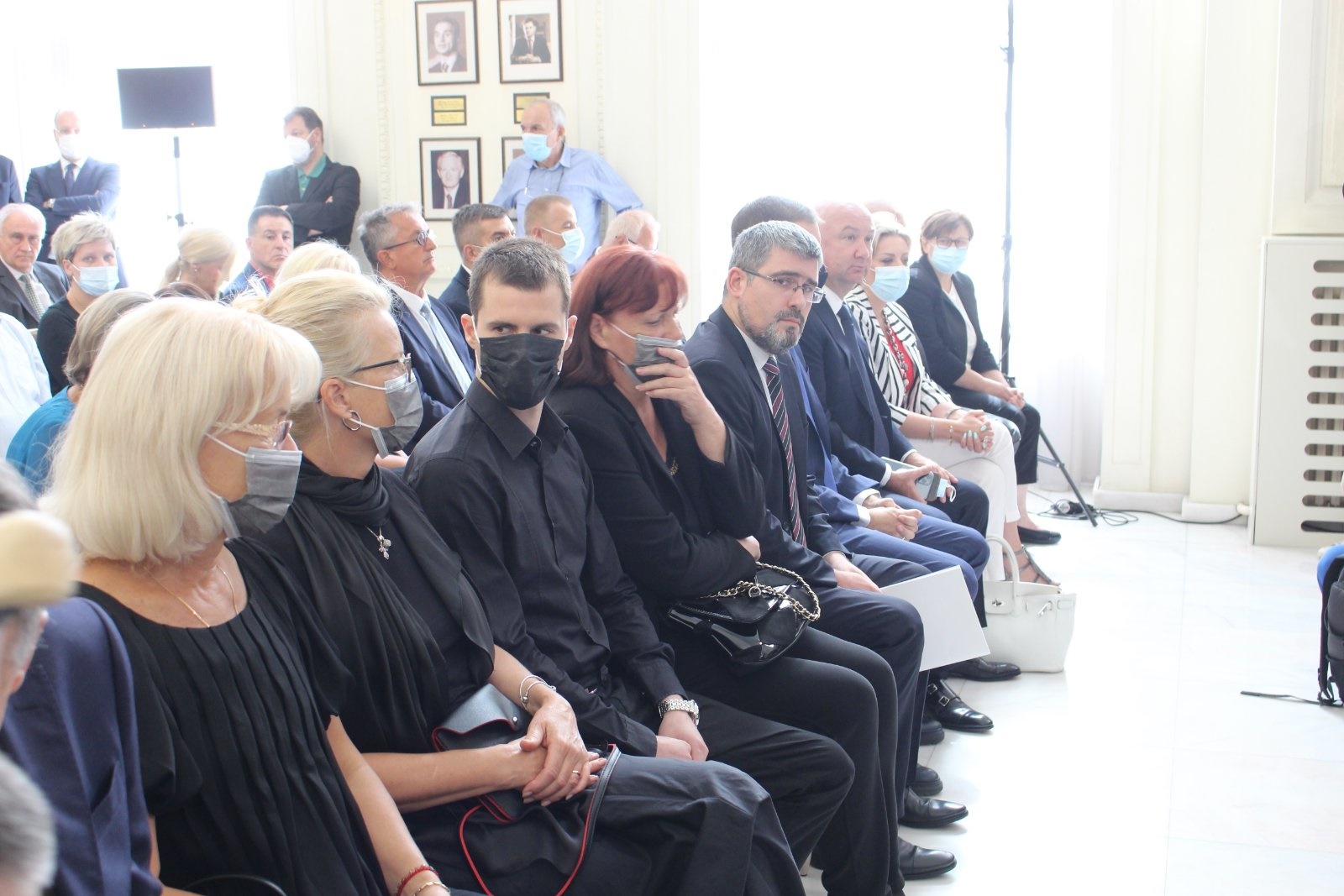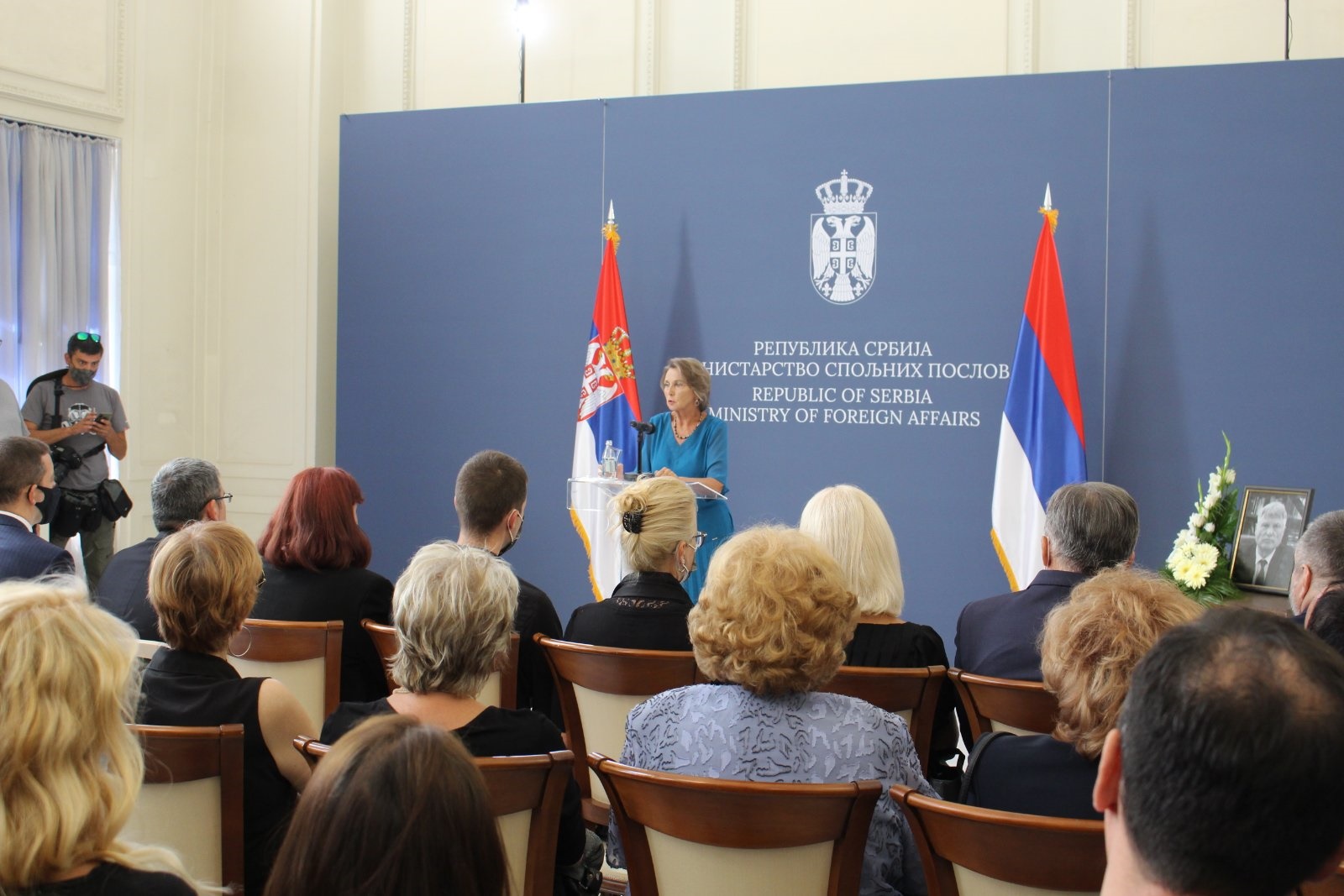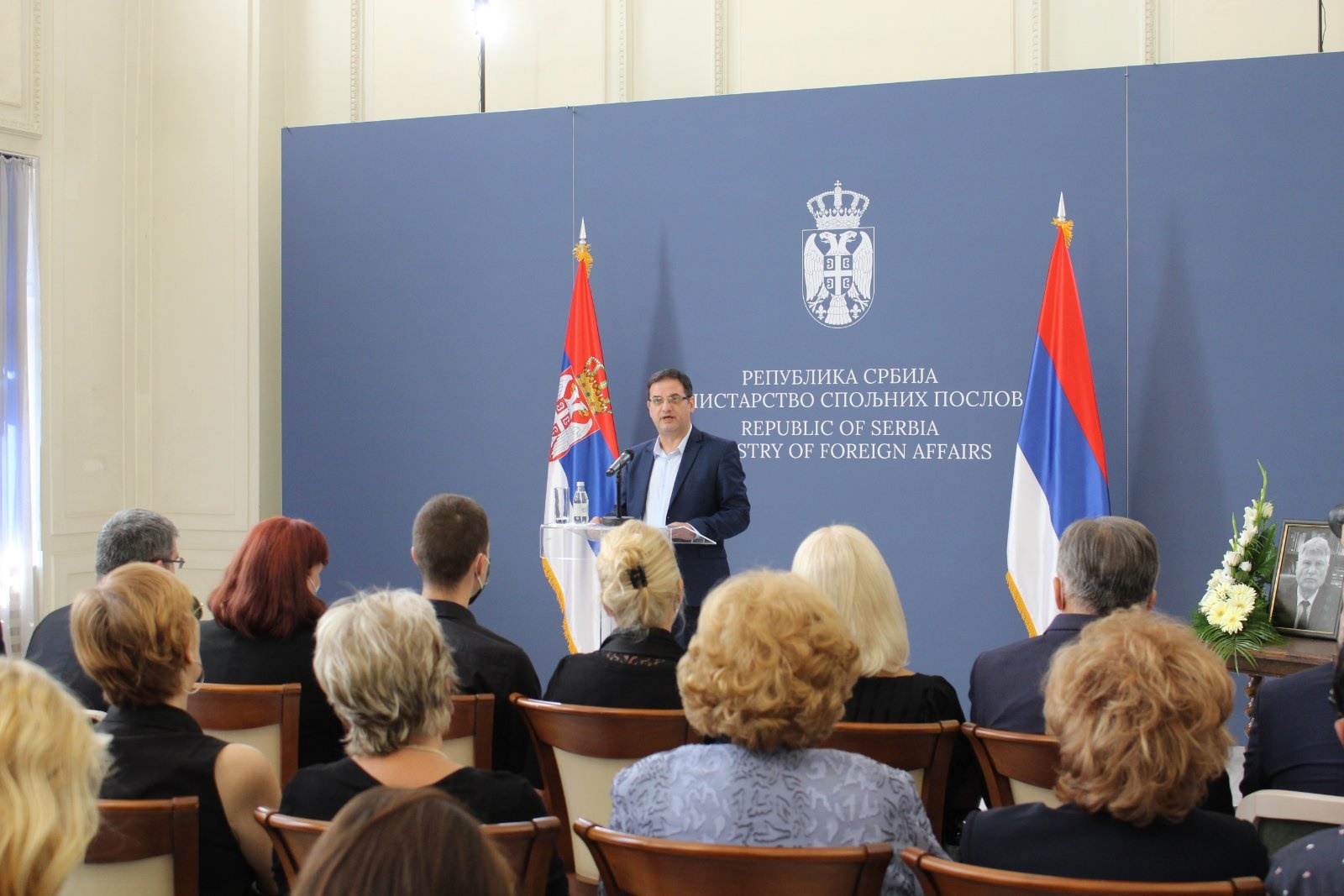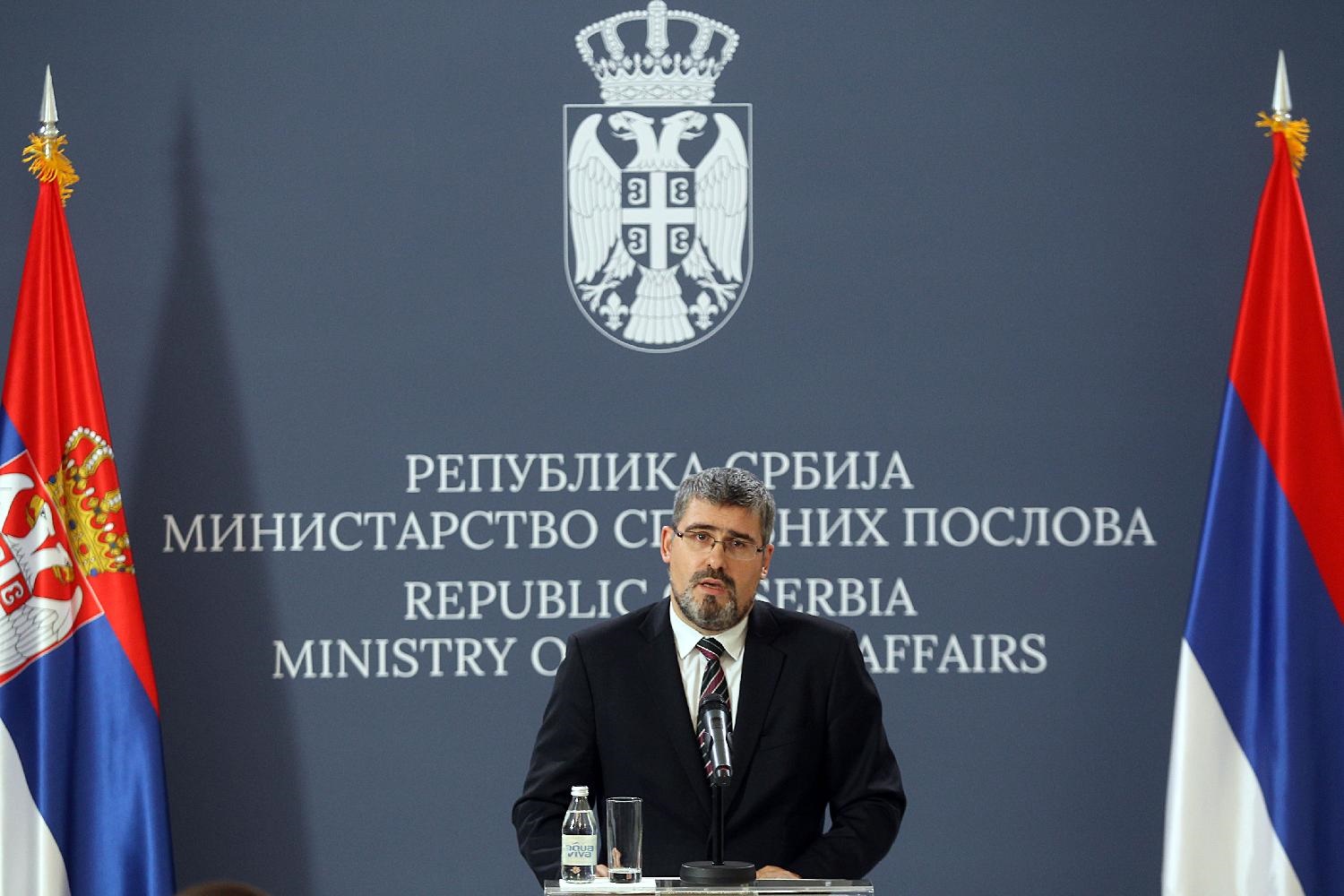Commemoration for Miroslav Lazanski held
Lazanski passed away suddenly, on Wednesday at the age of 71, and was buried today at the New Cemetery in Belgrade.
State Secretary at the Ministry of Foreign Affairs, Nemanja Starović, reminded of Lazanski's rich journalistic career, emphasizing that his reports from the battlefields in the former Yugoslavia always bore a recognizable, personal stamp.
"It is difficult to list all the prominent world statesmen and military commanders he interviewed, including three Soviet marshals, the head of the KGB, the commander of the British fleet from the Falklands War, chiefs of the armed forces from China, Russia, Ukraine, Japan, Italy...", stated Starović.
He reminded that Lazanski, among others, interviewed the Russian President Vladimir Putin, President of Belarus Alexander Lukashenko, President of Syria Bashar al-Assad, President of Romania Nicolae Ceaușescu, President of Afghanistan Mohammad Najibullah…
He also stated that Lazanski was elected MP in 2016, and that in 2019 he became the ambassador of Serbia to Russia.
"The series of reports from Libya brought him the Grand Prix of the International Reportage Festival in Apatin in 2011, and in 2019 he was awarded the City of Belgrade Award for Journalism", Starović stated.
Journalist and former editor of "Politika", Ljiljana Smajlović, pointed out that Lazanski was a journalist whom the people loved, and who did not earn the love of readers by inciting political anger or calling for revenge and using political gossip.
"He did not use political gossip, he did not disclose anything that would humiliate others, he never hit a millimeter below the belt and he did not draw a target on anyone", said Smajlović.
She pointed out that Lazanski was always the most read journalist of "Politika" and the biggest star at the time when she ran that newspaper.
"The editor of the site once told me that he had moved the time of publishing the texts that came out in print that day, and that only Laza's readers called and asked why his column was late", Smajlović recalled.
She said that Lazanski was a representative of the old American school of journalism whose motto was "publish and be cursed" and said that it was not enough for Lazanski that, for example, he received an exclusive interview with Putin in 2014, but that he also wanted a photo of the Russian president holding "Politika".
She recalled that they invited her from the Russian embassy to ask if it was true that there was such a tradition in "Politika", to publish such photos with interviews.
"I replied that we would like that, but that I cannot say that it is a tradition. The embassy understood what it was about and they did not forward that request. However, when Putin came to Belgrade, Lazanski approached him at the reception, handed him "Politika" and returned to the editorial office with that photo", Smajlović said.
As she said, Lazanski was one of the last great Yugoslav legends.
"Many journalists live out their historical moments, but few are like Lazanski, whose historical moment lasted for four decades. He was a journalist who lasted and will last for a long time", said Smajlović.
The editor-in-chief of Sputnik in the Serbian language, Ljubinka Milinčić, said that she was happy to have Lazanski as a friend and that they became closer when he started working for Sputnik.
"I remember when I announced that to my colleagues who asked what he was going to do. I told them that he can do what he wants, because he is Lazanski, and so it was. Everything he did raised the circulation, and these days, we notice with sadness that Lazanski is raising our circulation for the last time", said Milinčić.
She says that Lazanski did everything with great love, which, she added, was the key to his success and the fact that he became such a star. Milinčić said that death is an incompatible word with Lazanski and quoted the verses:
"First you live, then you become a memory, and only when everyone forgets you, you die..."
"Travel Lazo, there is no death, we will always remember you", said Milinčić.
"Politika" journalist Aleksandar Apostolovski described Lazanski as a master of journalism who decided that he would never write in a boring way and protected this idea with his name and surname.
Apostolovski said that Lazanski adjusted all journalistic rules to himself, and with the tectonic strength of his talent and perseverance, decided that instead of the content of the text, the main news would be himself.
"The country could have turned upside down, anything could have happened, but his departure had to be the news of the day", Apostolovski said.
For Apostolovski, Lazanski was the only journalist from Yugoslavia who had the status of a pop star and he used to call him Zdravko Čolić of Serbian and Yugoslav journalism.
"He was a Serb, nostalgic for Yugoslavia and sad about it, those who considered him a nationalist knew nothing about Laza, nor about life", said Apostolovski.
The commemoration was attended by the Minister of Innovation and Technological Development Nenad Popović, Minister of European Integration Jadranka Joksimović, Deputy Mayor Goran Vesić, journalist Milomir Marić, writer Aleksandar Gatalica, journalist Vesna Jugović.
Lazanski buried in the Alley of Deserving Citizens
The journalist, military-political commentator and ambassador of Serbia to Russia was buried today in the Alley of Deserving Citizens at the New Cemetery.
Along with family members, friends and colleagues, Serbian President Aleksandar Vučić, B&H Presidency member Milorad Dodik, Russian Ambassador to Belgrade Alexander Botsan-Kharchenko, Serbian Government Ministers Nenad Popović and Ratko Dmitrović, also said goodbye to Lazanski, who passed away suddenly.
Acting editor-in-chief of Politika, for which Lazanski wrote, Marko Albunović, said that his departure was not only a loss for his family, but also for the whole of Serbia, for diplomacy and journalism.
Source: Tanjug




